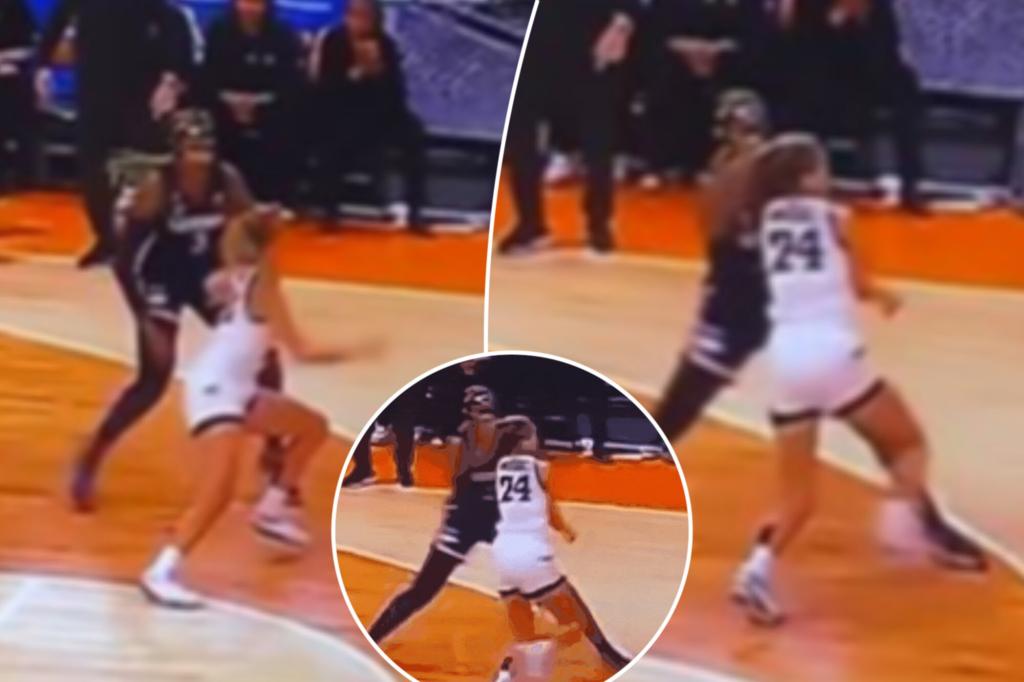In the Final Four loss to Iowa, the controversial foul call on UConn’s Aaliyah Edwards in the final seconds initially sparked outrage among viewers. The call, a moving screen on Hawkeyes guard Gabbie Marshall, came with only 3.9 seconds remaining as UConn trailed by one point, in an attempt to set up a final shot for star guard Paige Bueckers. The call was seen as unfair by many, considering the effort the UConn team had put in to reach that stage of the tournament and the potential championship matchup they were on the verge of.
Despite the initial outcry, a new angle of the video surfaced on social media, leading to a shift in opinions about the call. CBS college basketball analyst Seth Davis, who had initially questioned the call, now defended it vehemently, describing it as obvious and clear. Other prominent figures in basketball, such as Barstool founder Dave Portnoy, also supported the call, emphasizing that it was indeed a foul. Marshall herself admitted post-game that she knew it was a moving screen, validating the referee’s decision.
While some, like UConn coach Geno Auriemma, believed that a foul could have been called on every possession, Iowa ultimately emerged as the winner of the game, advancing to the title game. Despite the controversial call in the final moments, Bueckers refused to use it as an excuse for the loss. She acknowledged that there were mistakes made throughout the game that could have prevented the situation from arising. Bueckers took responsibility for the outcome and expressed regret over not doing a better job to ensure the game was not left to chance or decided by a single call.
The intensity of the debate surrounding the foul call reflected the high stakes of the game and the emotions involved in such a critical moment. With UConn’s championship hopes dashed and Iowa moving on to the title game, the call became a focal point for fans, analysts, and players alike. While opinions initially varied on the fairness of the call, the emergence of a new angle provided clarity for some and led to a reassessment of the situation. Ultimately, the call stood, and Iowa’s victory was secured, but the impact of that decision continued to resonate in discussions about the game.
The refusal of UConn’s players and coaching staff to dwell on the controversial call as a defining factor of their loss showcased a commitment to accountability and resilience. Bueckers’ acknowledgment of her role in preventing the game from being decided by a single call highlighted a maturity and sportsmanship that transcended the disappointment of defeat. The team’s ability to reflect on their performance and take ownership of their mistakes demonstrated a dedication to continuous improvement and a refusal to be defined by one contentious moment. In the aftermath of the Final Four loss, UConn’s response to the foul call served as a testament to the team’s character and determination to bounce back from adversity.


